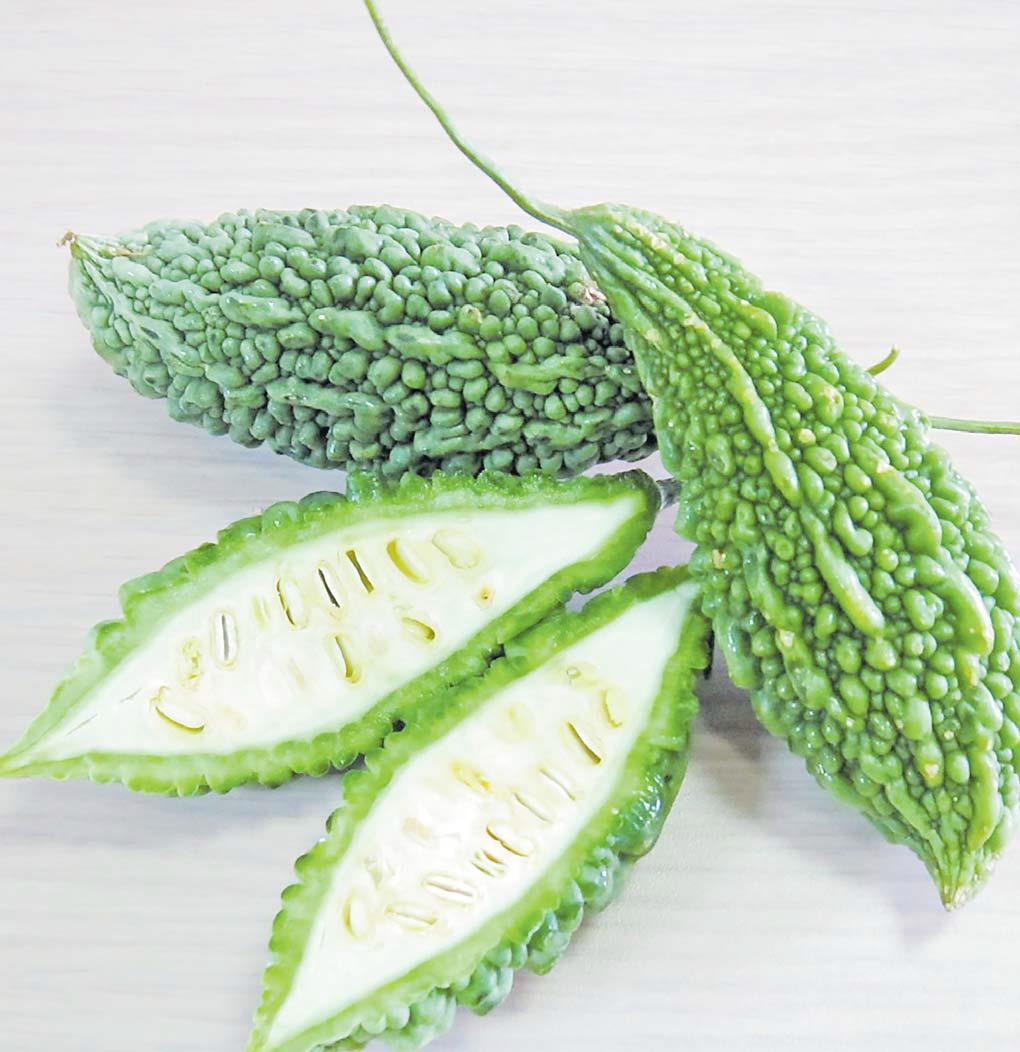As more Fijians turn to growing fresh produce at home to help reduce food bills, Chef Seeto suggest it is also an opportune time to restart the battle against non-communicable diseases, by learning to eat more nutritionally from your own garden.
During these unprecedented times of COVID, it is easy to forget that another life-threatening disease still afflicts many developing nations including Fiji – NCDs, non-communicable diseases.
Whereas COVID-19 is a highly infectious, communicable virus that is spread by close human contact, NCDs, by its very name, is not contagious but largely caused by lifestyle and diet. In other words, it is primarily our lifestyle choices that have an enormous infl uence on whether we develop diabetes, heart disease and some cancers later in life.
For nutritional chefs and doctors, the link between diet and health is clear – what you eat, or don’t eat throughout your life can have an effect on your health as you age. Eating rubbish food with no nutrition one or twice a week won’t harm you, but do it over a lifetime and you are essentially poisoning your body.
The lockdown of our nation and limited money in the local economy has provided us with the opportunity to learn to eat from our own garden to save money. We are so blessed as a nation to have such nutrient-rich soil and life-giving water that you could probably plant a broomstick in the garden, and it would grow. Jokes aside, this is the one national asset that will ensure that Fijians have the ability to eat more nutritionally if they choose.
COVID-19 has also provided opportunity for many to learn to eat more fresh fruits and vegetables for health and longevity. Whereas before-COVID (BC) it was harder to get the family to eat fresh produce from the backyard, economic circumstances have now forced many to do just that. The campaign to combat NCDs has been a difficult one in this region, as trying to convince people to change their eating habits has been enormously challenging.
However, with most families becoming more conscious of how they spend their money during the lockdown, learning to eat more nutritionally may be a blessing in disguise for Pacific Islanders.
Medicine in your backyard
There is a wondrous supply of seasonal vegetables for us to enjoy in Fiji. Right now, gourds seem to be in season across the islands and the different varieties offer a plethora of nutrition and healing power. Most readers will know that I am a huge believer in what mother nature seasonally provides, is for a reason. Whether you are human, animal, bird or insect, these seasonal plants are available as both food and medicine. Like nature’s own pharmacy, the signalling of in-season produce is an invitation to indulge in medicine to help to heal, remedy and rejuvenate our body’s cells.
Gourds are available in Fiji in many forms including bitter gourd (kerala), bottle gourd (loki) and ridge gourd (turai). They are members of the cucumber family and are technically fruits not vegetables as they contain seeds. Some see the gourds as being only Indian food, but gourds are enjoyed across the globe in many countries and have helped sustain humanity for thousands of years.
Bitter is medicine
As the name suggests, bitter gourd is indeed, bitter.
Love it or hate it, bitter gourds contain incredible medicinal properties in the battale against NCDs.
In nature, many of the bitter fruits and vegetables are strong medicines designed to help all living creatures heal and repair. Also known as karela, it is rich in iron, magnesium, vitamins, fi bre, potassium and antioxidants. It is low calorie, helps maintain blood sugar levels and prevent type 2 diabetes, effectively cleanses the liver and other digestive organs, boosts metabolism and immunity.
Besides Indian vegetable preparations, karela juice and soup are other great ways to consume this ingredient. In Chinese culture it’s believed eating bitter melon can help reduce blood sugar, help your liver recover and detox your body. The Chinese love stir frying karala with meats and fermented or spicy sauce to compliment the bitterness of this medicinal plant.
It’s lauki time
Bottle gourd is one of the most cooling vegetables around. Also known as lauki or loki, doodhi or calabash, it is high in water content, making it a light, hydrating vegetable, treating digestive disorders, replenishing lost water and electrolytes, preventing and treating urinary tract infection, and keeping your skin and hair healthy and glowing.
This gourd is ideal for people constantly looking to rehydrate like sports people, grog and alcohol drinkers. Bottle gourd is a rich source of vitamin C, K and calcium. It helps in maintaining a healthy heart and brings down bad cholesterol levels. The juice is also beneficial for diabetic patients as it stabilizes the blood sugar level and maintains blood pressure. The best time to have it is in morning.
A small glass would just be perfect but make sure you consume the juice immediately as it oxidizes quite fast and will turn an ugly grey colour.
Ridge gourd delights Ridge gourd is also known as star gourd, sponge gourd, jhinga or turai, and not surprisingly is a natural remedy for many ills ranging from stomach-related ailments, to colds and coughs. Of all the gourd family, turai is the most fibrous and for this reason is a wondrous natural food that brooms out the intestinal tract, moving particles along the tubes to prevent clogging. This gourd may taste weird, but ridge gourd should be consumed at least once a week for dietary fibre, vitamin C content, alkalising the body and reducing body heat, reducing infl ammation inside the body. The taste of the vegetable resembles zucchinis, with the added roughness of the skin. The ridge gourd has some amazing health benefits and is a great source of medicinal properties and is best sautéed or stir fried to capture the best of this weird and wonderful gourd.
So the next time you see gourds at the market or on the roadside, stop and ask yourself if you have acknowledged nature’s call to eat your seasonal medicine.
- Lance Seeto is an award-winning celebrity chef, host of FBC-TV’s “Exotic Delights” and owner of KANU restaurant in Nadi.





